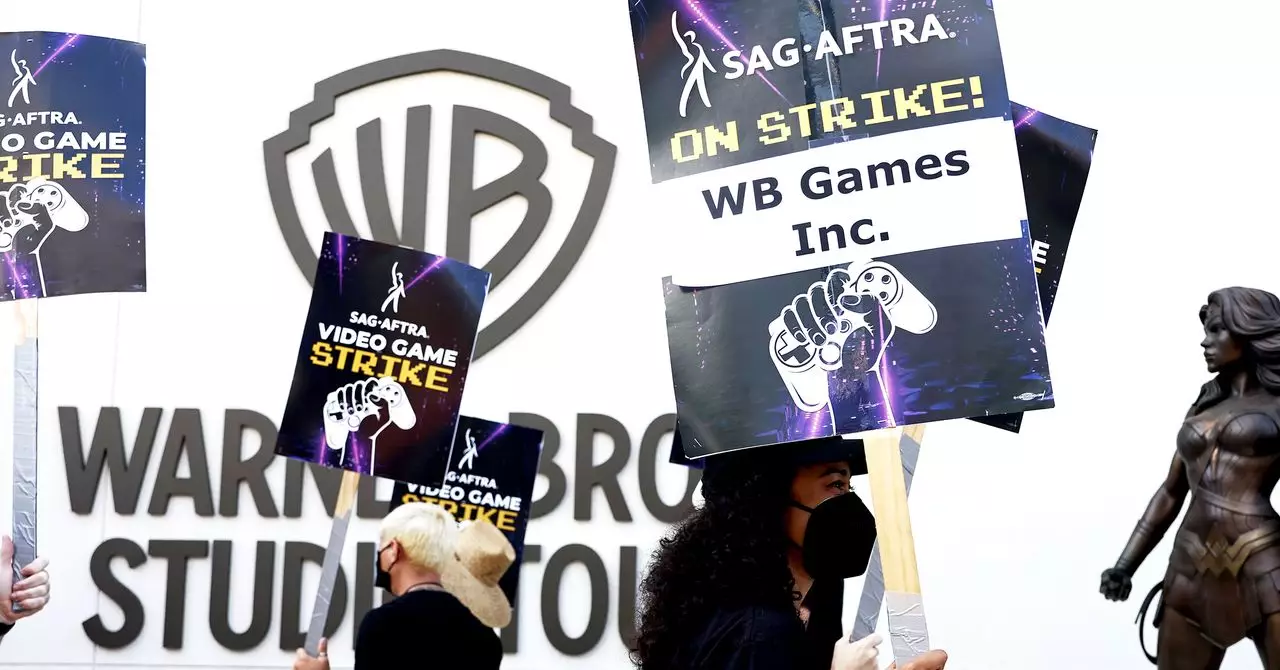The recent ratification of a new contract for video game actors by SAG-AFTRA marks a pivotal shift in the relationship between performers and the rapidly evolving world of digital entertainment. With an overwhelming 95% approval margin, this agreement signifies more than just revised pay rates; it underscores a profound commitment to protecting human artistry in an era increasingly dominated by artificial intelligence and digital replication. This victory signifies that performers are no longer passive participants in this digital transformation but active defenders of their craft, rights, and legacy. It reaffirms that the human voice, mimicry, and presence hold irreplaceable value that no line of code or AI algorithm can fully replicate.
The contract’s key features, including guaranteed annual raises over three years, increased compensation, and safeguards against AI misuse, serve as a robust framework. These measures recognize performers as essential contributors whose work shapes immersive narratives and emotional engagement in gaming. More importantly, the agreement recognizes the intrinsic worth of human creativity, enshrining protections that prevent unscrupulous companies from exploiting AI to bypass fair compensation or consent.
AI as a Threat to Human Creativity: A Concerning Reality
For years, industry insiders have voiced concerns that AI rapidly encroaching on creative domains would erode the livelihoods and artistry of voice actors and performers. Even before tools like ChatGPT or generative voice synthesis became mainstream, performers sensed a looming threat: machines might someday replace their nuanced, emotionally driven performances with cold, synthetic imitations. This fear was well-founded, as demonstrated by recent high-profile instances where AI was deployed without actors’ knowledge or consent.
The case of the AI-generated Darth Vader in Fortnite exemplifies the disturbing trajectory of this trend. When AI produced a digital recreation of Vader voicing inappropriate language—prompting a swift corrective update—it became clear that AI is not only a tool of innovation but also a potential weapon against performer rights. Such instances underscore the urgent need for regulations that require transparent consent and ensure performers retain control over their likeness and voice, even post-mortem. Because gaming is fundamentally a digital medium, the stakes are even higher; it’s a domain where artificiality could permanently threaten the authentic human element.
Guardrails and Ethical Imperatives in AI Usage
The new contract’s inclusion of consent and disclosure provisions signifies an essential step toward ethical AI deployment. Performers can now specify how their voices or likenesses are used and retain the right to withdraw approval if they believe AI is misrepresenting or misusing their work. This kind of regulation is not merely contractual; it reflects an ethical stance that respects performers’ agency and dignity.
The protection of deceased artists’ likenesses underscores the importance of respecting artistic legacies. With James Earl Jones blessing the digital recreation of his Darth Vader voice before his passing, there is both precedent and precedent-setting potential in safeguarding the rights of performers in perpetuity. Establishing clear, consistent standards around AI usage cultivates trust between performers and industry stakeholders, ensuring that technological advancements serve creative storytelling rather than exploitative practices.
Moreover, this contractual shift sends a message to the broader industry: automation isn’t inherently beneficial if it undermines the human element. The creative arts are about emotional resonance, nuance, and authentic expression—traits AI cannot authentically replicate. The industry’s recognition of this fundamental truth will be crucial in maintaining the integrity of entertainment and respecting performers’ contributions.
Looking Ahead: A Cultural and Industry Reckoning
This development reflects a necessary cultural and industrial reckoning. The entertainment world is at a crossroads where artificial intelligence could either augment creative processes responsibly or threaten to replace human talent altogether. As performers stand firm with new protections, they set a precedent not just for gaming but for all digital content creation.
The ongoing debate about AI’s role in creative sectors will undoubtedly intensify, but this agreement highlights a core principle: technology should serve humanity, not diminish it. Creators, actors, and voice performers are the custodians of authenticity and emotional depth. Their rights, recognition, and control must be upheld as technology advances. This contract signals hope that the industry values the irreplaceable nature of human expression while navigating the complexities of AI integration responsibly and ethically.
In this turbulent age of digital innovation, the industry’s embrace of performer protections is both a bold statement of principle and a pragmatic blueprint. It recognizes that true storytelling cannot be distilled into lines of code; it requires human sensitivity, nuanced performance, and the respect for individual artistry—values that no machine can fully emulate or replace.

